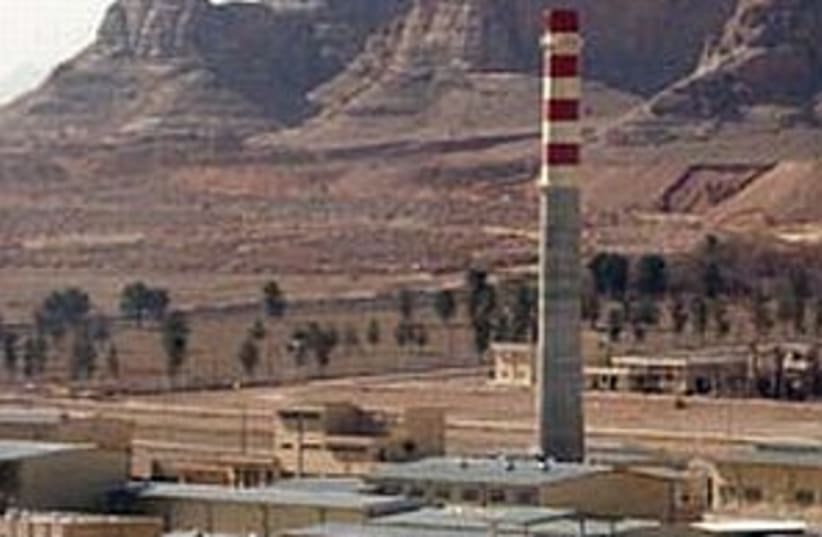Olmert, in his first public comments on diplomatic issues since filling in for ailing Prime Minister Ariel Sharon, said that Israel could not under any circumstances "allow anyone with these kinds of malicious designs against us, have control of weapons of destruction that can threaten our existence." His comments came at a press conference after meeting President Moshe Katsav.
"Israel can not reconcile itself with a situation where there is a threat to us, just as in my opinion both European countries and the US can't reconcile themselves to it," Olmert said. He added that Israel has acted, and will continue to act, in cooperation with the US and Europe.
"I think there is a way to ensure that non-conventional weapons will not be found in irresponsible hands that could endanger world peace," he said.
Olmert's comments came on the same day that a high-level Israeli delegation went to Russia to appraise the Kremlin of how Israel views the situation. US, European and Israel diplomatic efforts are presently geared at getting Russia and China to support sanctions against Iran at the UN Security Council.
A senior source in the Prime Minister's Office said, however, that this delegation - headed by Giora Eiland, head of the National Security Council, and Gideon Frank, director-general of the Atomic Energy Commission -- had planned to go to Moscow before the EU-3 (Germany, England and France) decided to recommend last week sending the issue to the UN Security Council.
The delegation's mandate is to brief the Russians on the strategic dialogue Israel held with the US in November, a dialogue which spent a great deal of time on the Iranian issue.
Although the source said that this trip was not the result of the dramatic EU-3 decision, one Foreign Ministry official said that "the whole Iranian nuclear issue has gone into high gear. There is a lot of intensive diplomacy behind the scenes, and Israel is active."
In Russia, meanwhile, Foreign Minister Sergey Lavrov said Tuesday that Moscow was not yet ready to refer Iran to the UN Security Council. Russia prefers to see if it can use the possibility of talks with the EU as leverage to force Iran to return to the uranium enrichment moratorium it broke this month, he added.
Lavrov also told reporters at a wide-ranging news conference that sanctions are not the best way to resolve the Iranian nuclear crisis, and that all nations involved should keep nonproliferation as their main goal.
"Sanctions are not the best or the only way to solve international problems," Lavrov said. "Our common efforts should be aimed at getting answers to all the questions, without exception, which were posed by experts of the International Atomic Energy Agency."
Lavrov warned against letting "momentary political
considerations" get mixed up with the Iranian nuclear issue. When asked when Russia would be ready to refer Iran to the Security Council, Lavrov responded that the IAEA should first try to use all its possibilities.
Russian President Vladimir Putin on Monday also had urged caution, saying Tehran might still agree to Moscow's offer to move Iran's uranium enrichment program to Russia - a step offered as a way to resolve the deadlock over Tehran's nuclear ambitions.
US Senator John Kerry, during a press conference in Jerusalem, urged the Russians to use their sway with Iran to get them to back down from nuclear development.
Kerry, who wrapped up a two-day visit in the region on Tuesday, said he hoped Russia could convince Iran to stop its nuclear activity and that if it failed to do so, he urged Russia to back sanctions against it.
"It seems to me that Russia can be an extraordinarily important player in helping us deal with Iran," said Kerry. "Russia has the ability to make a difference here and my hope is that Putin will step up and do that."
Kerry, who unsuccessfully ran against US President George W. Bush in the 2004 presidential elections, added that the international community has to be prepared to bring about "the strongest and broadest sanctions possible" should Iran persist in it's nuclear plans.

